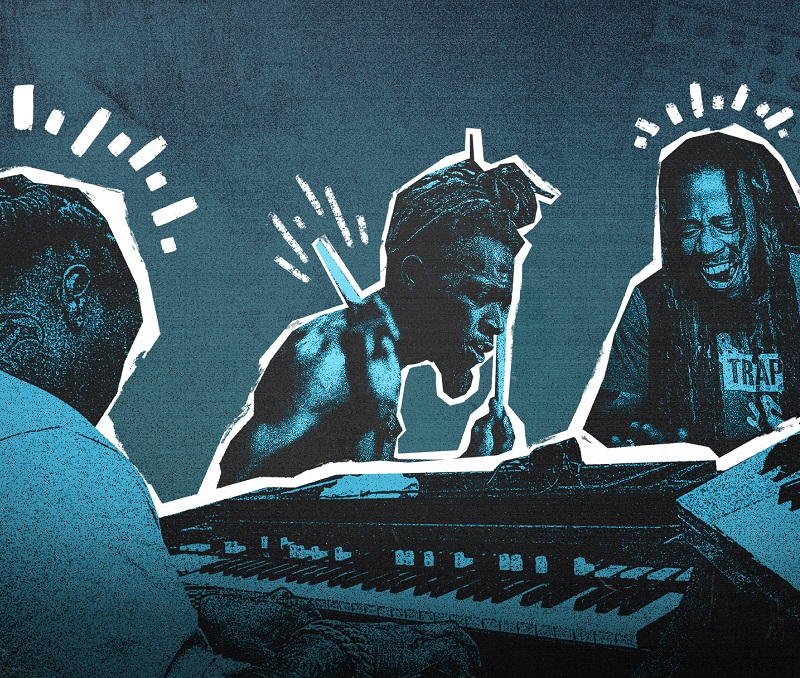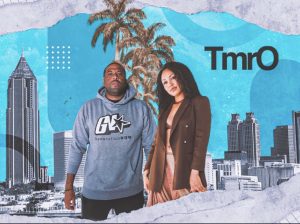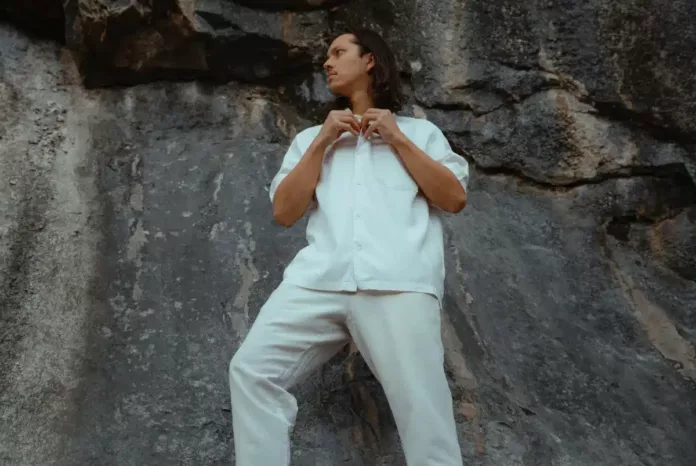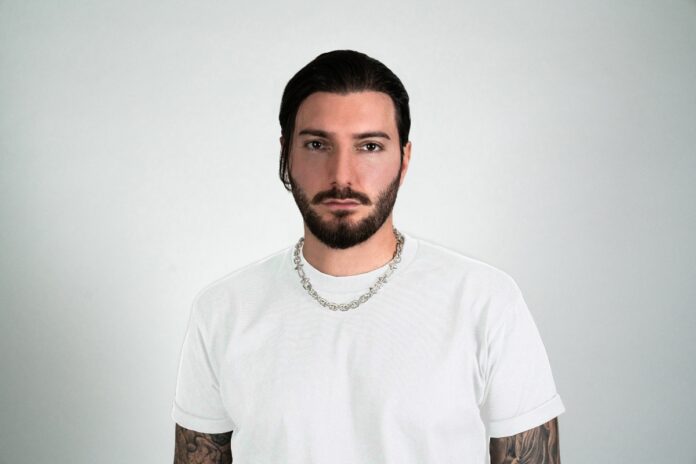
Introducing Trap Jazz, the new docu-film that documents the creation of this new genre of music. Presented by Black multi-media platform Andscape and HULU, Trap Jazz tells the story of three classically-trained musicians — founder Chris Moten, drummer Devon Stixxx, and producer Cassius Jay — all of whom have worked behind-the-scenes with some of the world’s biggest recording artists to date.
Now, it’s time they step into the limelight. Hailing from Atlanta, all three members are best friends who came together to form this unique, one-of-a-kind band, showcasing the reality of their rise from the hood to the main stage, while pushing forth the undeniable power that comes with music.
Chris Moten, who created Trap Jazz in 2015, states, “Trap Jazz is the community, the neighborhood, the hood, the streets. The pain, the struggle, everything that you go through in the hood. Not saying that it’s only for people from the hood. It’s still the pain, struggle, and conflicts of life, mixed with the medicine or therapy of music, to be able to overcome it. Or to be able to cope with it or deal with it.”
Advertisement
He continues, “Trap Jazz is all of that together. It’s the pain, the struggle and the success, all wrapped up in one. It’s Hip-Hop music from way back in the day, but it’s trap music because it’s today. That’s the whole Hip-Hop part of it, that’s the trap side. It’s not just the music, it’s the culture. It’s the family, it’s your friends. It’s the loved ones, it’s all of that together.”
The Source had the chance to speak with all three musicians at the Ace Hotel in downtown Los Angeles, just one day before their official screening at the same venue. Trap Jazz is available now on HULU.
What do you want people to take away from the film?
Chris Moten: I want you to take away the pain, the struggle, the trials of life, the complications. The downtime, the depression, the failures. Rock bottom is important to all of us, failure is important to all of us. But it’s what we do with that. When they see the film and all of my trials and tribulations that I went through, that I’m still pushing for success and to make it. No matter the hand that life has dealt you, you can still win.
And the devil will not win. The devil will work in your life, but he will not win. No weapon formed against us shall prosper. It’s not the pain that we go through that makes us, it’s what we do with the pain. Like a knife being forged in the fire, it has to be beat on by rocks over and over again. And burnt up and burnt up and beat on. We have to go through pain in order to experience our true destiny,
The movie, it’s not about what you see us doing at a high level. I don’t want them to be misinformed by that. I want them to be able to relate, that they don’t take from this that “oh, they’re this and they’re that. They’re doing something that we can’t do.” No, look at the history. Look at the story that we come from. The beginning, just like everybody.
Cassius Jay: Basically, don’t give up on your dreams! If you have an idea, go with it. I don’t care how long it takes. 4, 5, 6 years, go with it. Run with it. Don’t give up.
Devon Stixxx: I want them to take away the fact that we put our all into this, and the fact that we’re starting something new for the new generation. I want them to get a good view of us, to see our hearts and how humble we are. How much this really means to us.
Hip-Hop celebrates 50 years this year, what does Hip-Hop mean to you?
Chris Moten: Without Hip-Hop, I wouldn’t know how to turn pain into prosperity. Hip-Hop has done that. It’s not just the music, it’s where Hip Hop came from. It’s the African American culture that created it, how we started it, and what they did with it. Tried to use it against us and how we took it. Exactly what I’m saying: use the evil that they tried to use against us, we turned it into our success story. We use our pain and turn it to success. Hip-Hop is that for me. It’s not just the sound that we listened to. It’s everything that we’re made up of, from beginning to end.
Cassius Jay: It means a lot. Shout out Zaytoven, Zaytoven on that joint too. Hip-Hop means a lot. I wouldn’t be here if it wasn’t for Hip-Hop. I wouldn’t be able to take care of my family if it wasn’t for Hip-Hop. The culture of Hip-Hop really taught me don’t give up when you struggle, just keep going on. Thanks Hip-Hop!
Devon Stixxx: Hip-Hop means the world to me. I love Hip-Hop. Without Hip-Hop, I wouldn’t be able to play a lot of the drum beats and enjoy a lot of the things that I do within the music that I play. I love Hip-Hop! And I got a chance to play with a lot of Hip-Hop artists too, so it’s good.
What does Trap Jazz mean to Atlanta and Atlanta’s standing on the music landscape?
Chris Moten: For me, Andre 3000 is my favorite rapper. Like he said at The Source Awards, “The South got something to say.” For a long time, Hip-Hop was New York and LA. It was East Coast, West Coast. We all know that. After 3000, Outkast, and Goodie Mob, the South has been ringing bells. Sounding off alarms ever since. We’re one of those alarms. For Atlanta, it means that we win together once again, putting Hip-Hop on the platform and doing something that nobody else has done. You gotta know that can only come out of Atlanta.
Cassius Jay: Trap Jazz means a lot, because Atlanta started culture. We started a whole new genre, a whole new culture. It means a lot, Trap Jazz means the world to Atlanta. Everybody’s supporting it, so it’s very big in the culture.
Devon Stixxx: Trap Jazz means a lot to Atlanta because a lot of trap music comes from Atlanta anyways. We have a lot of amazing musicians and jazz artists. For us to be able to infuse the two, it’s something that’s different and something that’s unique for Atlanta. And we all are from Atlanta, so we’re putting Atlanta on the map with this. This new genre.







![Enter to win the VIP experience with DJ DIESEL at Decadence AZ [Contest]](https://mixsessiondjs.com/wp-content/themes/gridzone/img/thumb-medium.png)